Humpback Whales are the singers of the sea – but are they starting to change their tune?
Male humpbacks emit complex sequences of sounds that can travel across many kilometres of ocean. These beautiful, somewhat haunting songs are sung at low frequencies, some of which are outside the range of human hearing!
The exact purpose of Humpback Whale vocalizations is still being explored by scientists. Females and calves vocalize, but only adult males appear to sing, leading many to believe the sounds help to attract female mates. All members of a population typically sing the same tune, which may allow males to stand out with slight differences in vocalization. Good luck to those who are out of tune!
Changing the Station
Some change is good. Researchers have been noting for years that Humpback Whales gradually switch up their songs as they travel the ocean and cross paths with other populations. Sequences of sounds are then passed from population to population – a bit like an underwater radio.
This ocean-wide transmission of tunes has been dubbed a “cultural revolution” by researchers, and they’re still trying to determine exactly how and why new sequences are adopted by entire populations.
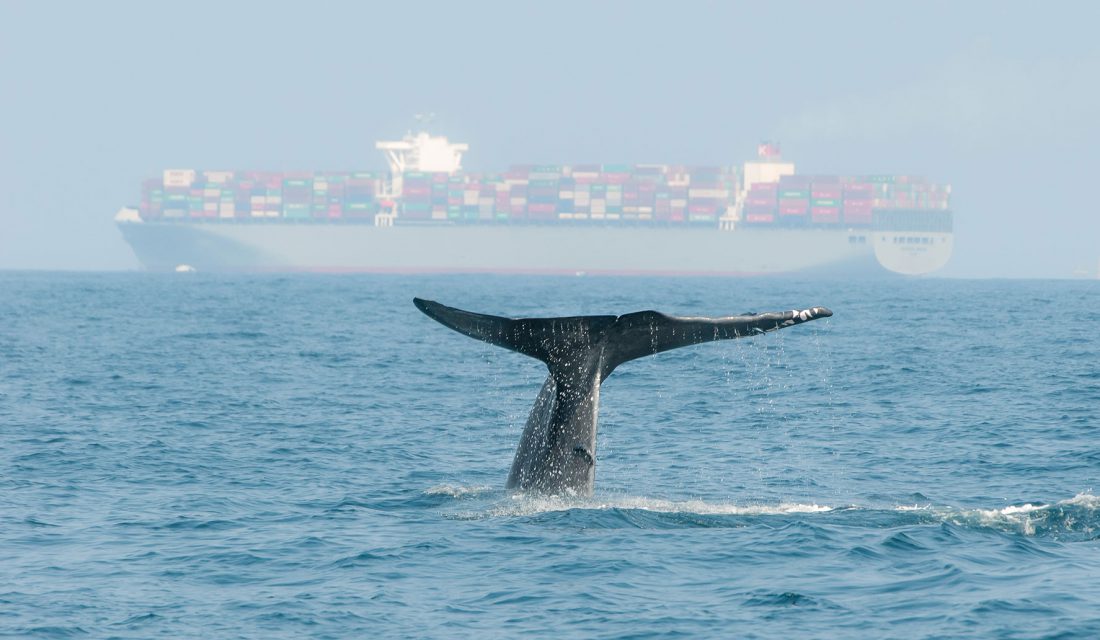
Unfortunately, humpbacks are also changing their tune because of human activity. The ocean is becoming increasingly crowded with passenger and cargo ships that emit low-frequency noise – just like Humpback Whales. So how does a noisy ocean impact humpbacks? Researchers discovered that Humpback Whales were less likely to sing within 500 metres of a shipping lane. They also found that humpbacks within approximately 1,200 metres of a recently passed ship tended to temporarily stop or reduce their singing, and most did not resume singing until at least 30 minutes after the ship passed.
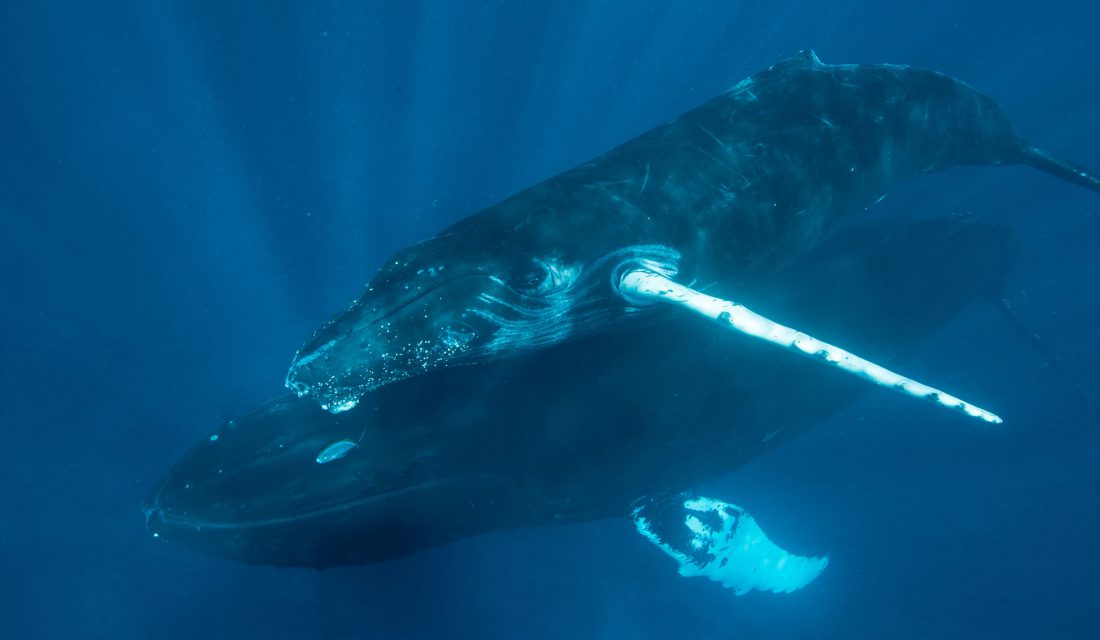
While adult males are the only humpbacks who sing, we don’t yet know how noisy ships affect the behaviour of females or calves who vocalize as well. It’s also difficult to determine how humpbacks are impacted by the males temporarily stopping or reducing their singing. But considering whale vocalizations are an important communication tool, the disruption could be a potential stressor for humpbacks – especially since ship traffic is on the rise.

Dolphins are another marine mammal who are changing their tune. Researchers from the University of Maryland Center for Environmental Science found that dolphins are simplifying their complex calls to compete with sounds from ships, ocean exploration and other human activity. Dr. Helen Bailey likens it to being in a noisy bar and shortening your sentences to try and get your message across. Dolphins are very vocal mammals who use their voices to communicate, socialize and find food. Reducing the complexity of their sounds could have consequences, but more research is needed to determine the exact impact.
We often think of the ocean as a dark and quiet place, but sound travels faster underwater than in air. Scientists are still working to understand exactly how noise from human-made vessels affects marine mammals, but it’s important to recognize the many voices we may be interrupting.

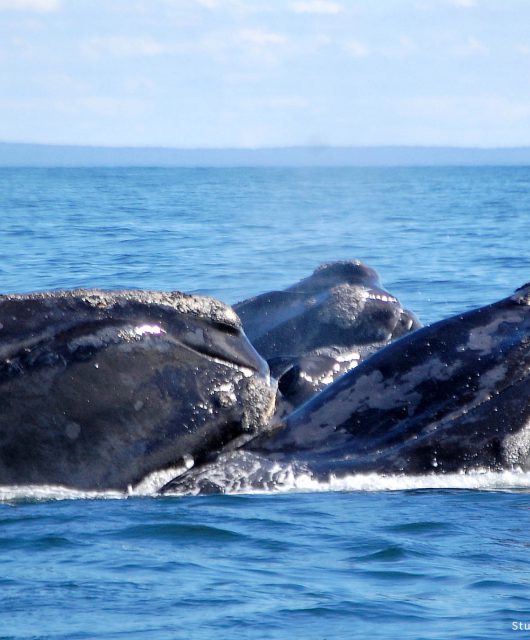

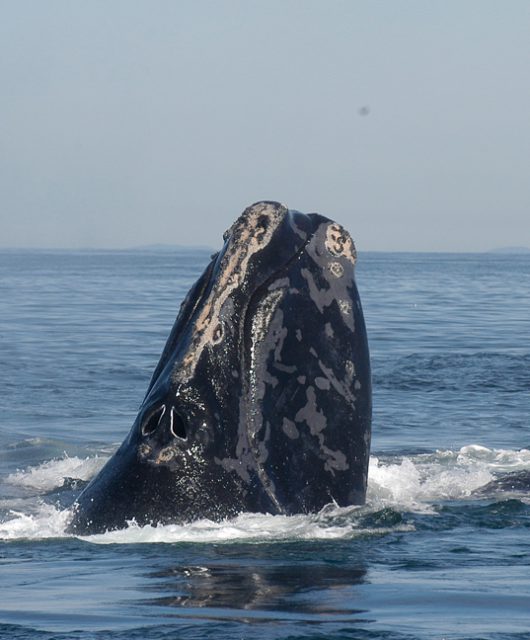
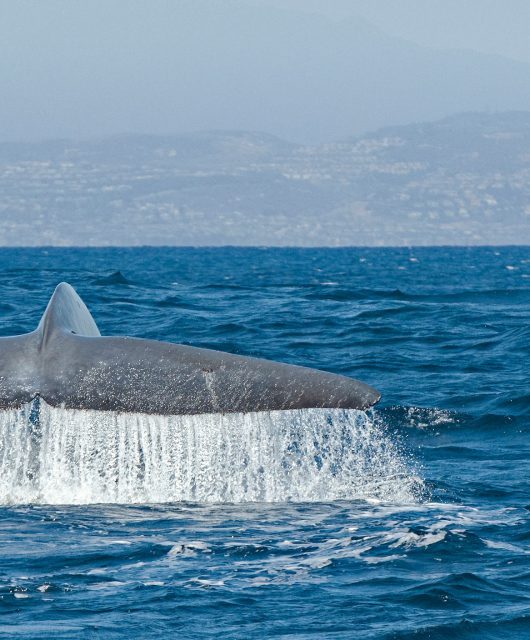
4 comments
Amazing how sounds travel under water as compared to above water. Does the sound vibrate to some extent?
Please make more “noise”, so that more people will become aware of the “rethink use of plastics” and sign the petition.
We do not call our children from across the road during vehicle traffic. Chances are whales also help their families cross the shipping lanes.
sound causes air molecules to vibrate at specific frequencies to allow our ears to receive and brains to interpret. water has a lot of molecules to transfer sound